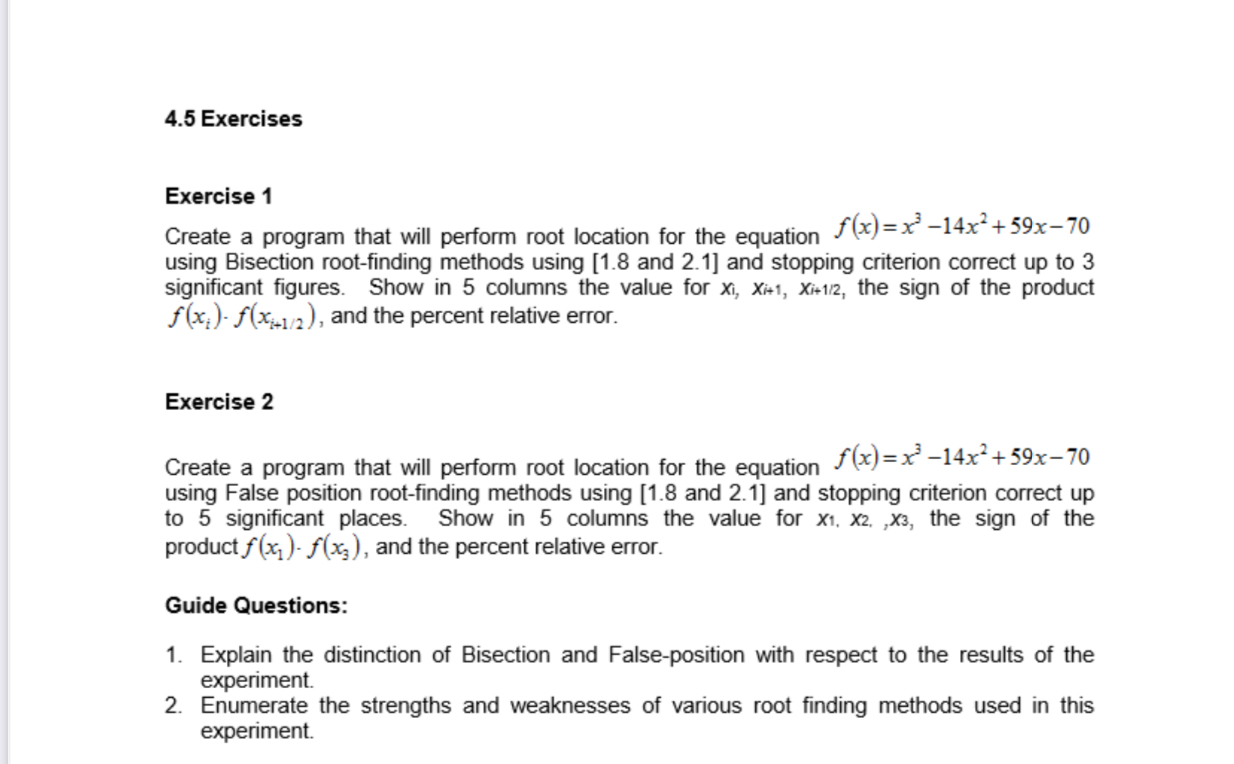Question: 'rocedure: Obtain the interval, x i and x i + 1 , containing the root. Evaluate the midpoint of the interval, x i + 1
'rocedure:
Obtain the interval, and containing the root.
Evaluate the midpoint of the interval,
Check the sign of the product
a If the sign of the product is positive, then the root lies in the RIGHT half of the interval. Replace by and retain
b If the sign of the product is negative, then the root lies in the LEFT half of the interval. Replace by and retain
c If the product is zero, then the root is equal to
Repeat steps and and stop when the absolute percent relative error of is less than a given error, which is a very small number close to zero, eg error The present value of may then be considered as the root.
False Position Method Also known as the Regula Falsi or Linear Interpolation method. Like the Bisection method, this method can be used once the interval containing the root has been determined. The method deals with joining the function at the upper and lower intervals with a line. The intersection point of the said line with the axis is the new root value, which will replace either one of the intervals a better approximation of the root. Each iteration estimates the actual root more closely until a given stopping criterion is met.
'rocedure:
Let the interval containing the root be and
Compute and
Compute
Check the sign of the product
a If the sign of the product is positive, then the root is between and Replace by and retain
b If the sign of the product is negative, then the root is between and Replace by and retain
c If the product is zero, then the root is equal to
Repeat steps to and stop when the absolute percent relative error of is less than a given error, for example error The value of may then be considered as the root.
Exercises
Exercise
Create a program that will perform root location for the equation using Bisection rootfinding methods using and and stopping criterion correct up to significant figures. Show in columns the value for the sign of the product and the percent relative error.
Exercise
Create a program that will perform root location for the equation using False position rootfinding methods using and and stopping criterion correct up to significant places. Show in columns the value for the sign of the product and the percent relative error.
Guide Questions:
Explain the distinction of Bisection and Falseposition with respect to the results of the experiment.
Enumerate the strengths and weaknesses of various root finding methods used in this experiment.

Step by Step Solution
There are 3 Steps involved in it
1 Expert Approved Answer
Step: 1 Unlock


Question Has Been Solved by an Expert!
Get step-by-step solutions from verified subject matter experts
Step: 2 Unlock
Step: 3 Unlock


